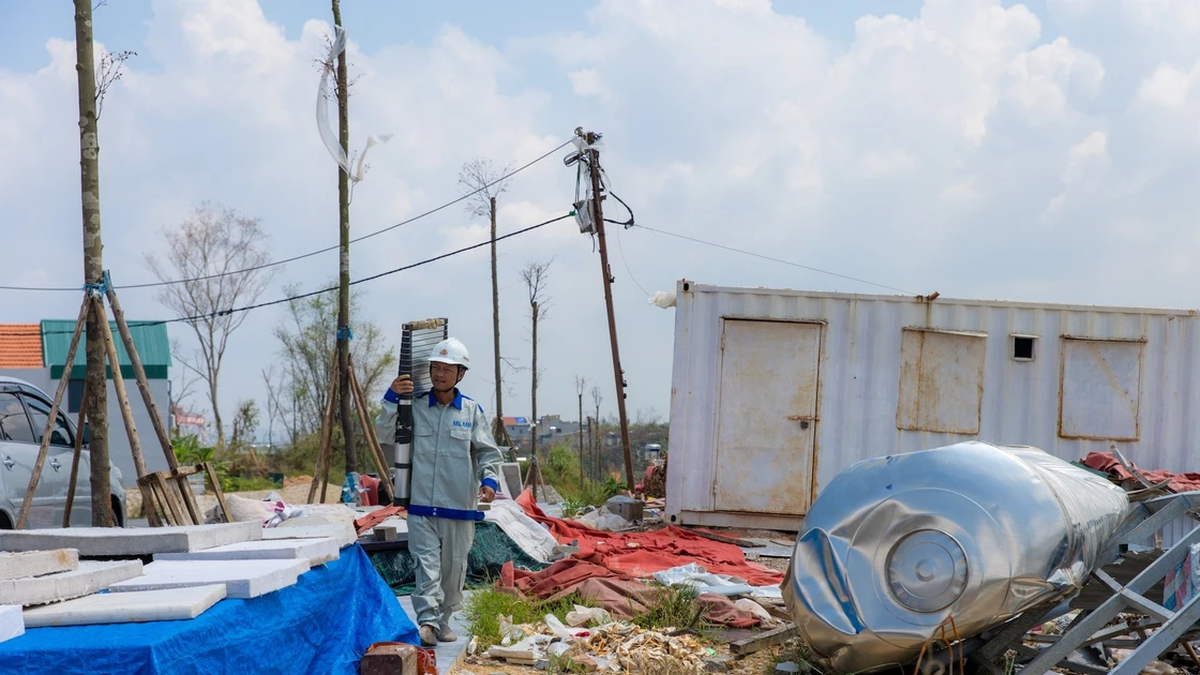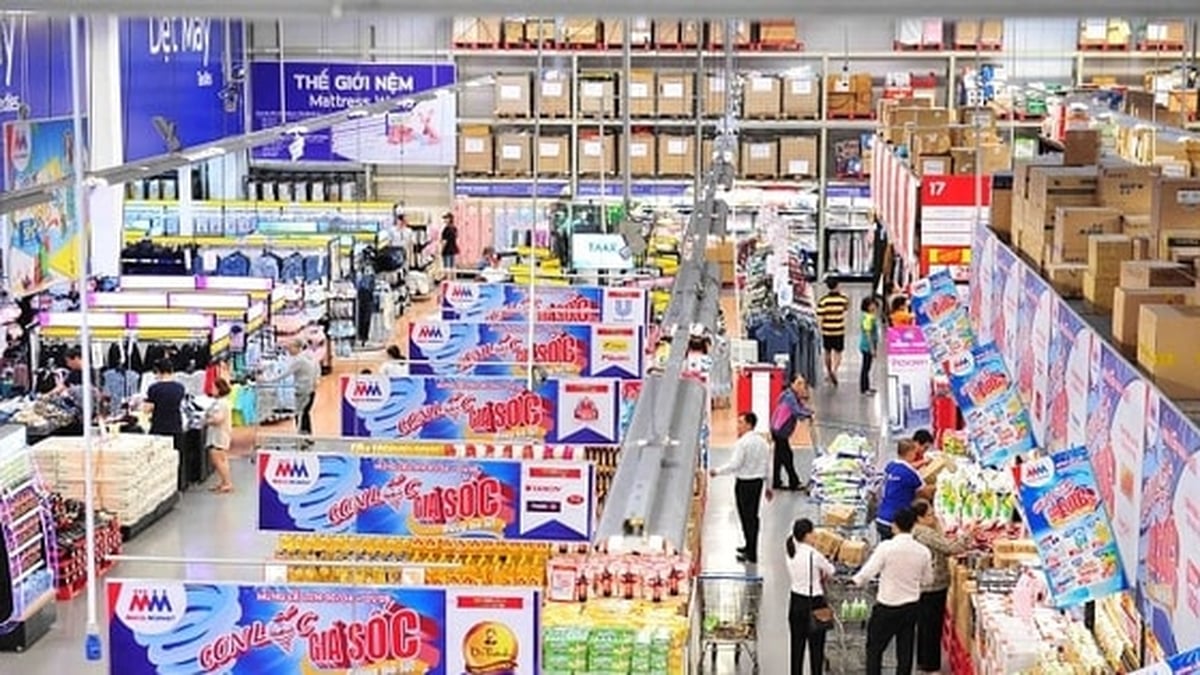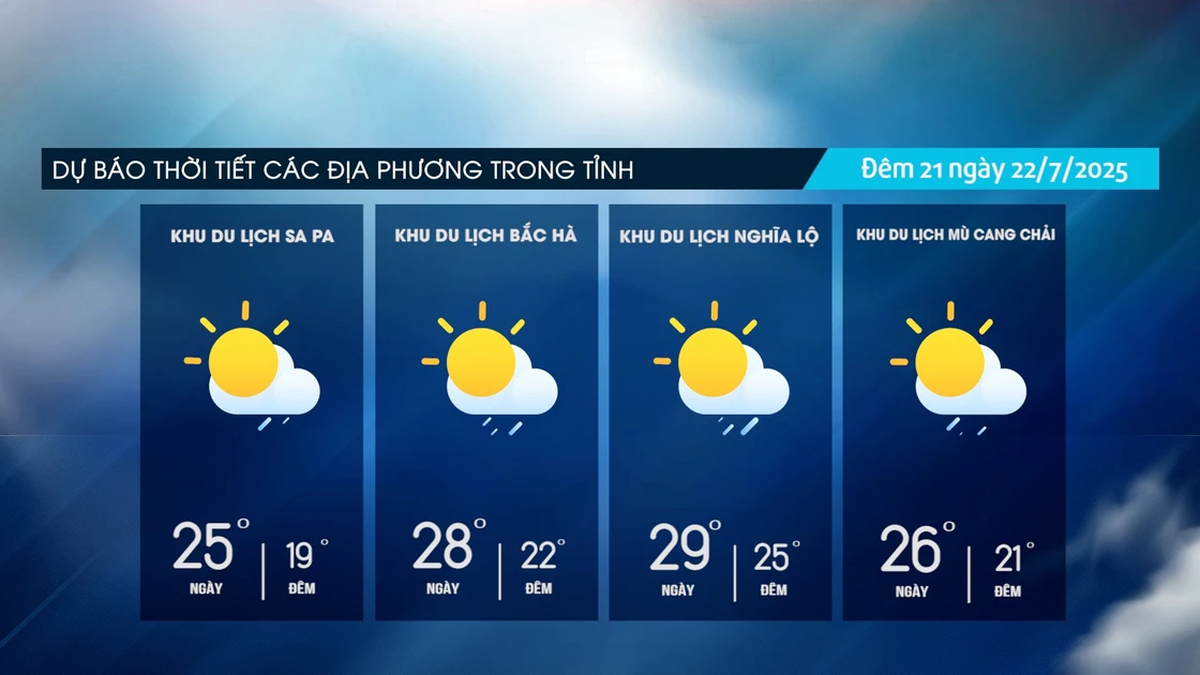
According to information from the Department of Asia - Africa Market ( Ministry of Industry and Trade ), according to statistics from Vietnam Customs, China is currently Vietnam's largest trading partner, with two-way trade turnover reaching 235 billion USD in 2022, more than 4 times higher than in 2014. Vietnamese goods exported to China are currently nearly 2 times higher than exports to the US and 5 times higher than to Japan. In contrast, Vietnam is China's largest trading partner in ASEAN.
In 2023, import and export turnover to China will have many improvements, especially from the second quarter onwards. In the first 10 months of 2023, Vietnam's import and export turnover with China reached 138.9 billion USD. Of which, exports to China reached 49.5 billion USD (accounting for 17% of Vietnam's export value), up 5.13%; imports from China reached 89.3 billion USD (accounting for 33.4% of Vietnam's import value).

Agricultural exports set consecutive records
As for agricultural products, it can be seen that 2023 is a "boom" year for this group of products. Data from the Ministry of Agriculture and Rural Development also shows that Vietnam's agricultural exports to this market have nearly doubled in the past 10 years, from 3.8 billion USD in 2013 to 6.8 billion USD last year.
In 10 months, China spent more than 3.2 billion USD importing fruits and vegetables from Vietnam, bringing the total agricultural import turnover to a record high of over 7.5 billion USD. Currently, 14 types of agricultural products, including 9 fruit products exported officially (dragon fruit, longan, rambutan, mango, jackfruit, watermelon, banana, mangosteen, durian) and more than 2,940 product codes for processed foods have also been approved by the General Department of Customs for official export, bringing in billions of USD in revenue.
Mr. Dang Phuc Nguyen, General Secretary of the Vietnam Fruit and Vegetable Association, said that bilateral FTAs as well as the fact that both countries participate in the ASEAN-China Agreement, the Regional Comprehensive Economic Partnership (RCEP) Agreement and the Protocol between the two countries have helped fruit and vegetable exports skyrocket. By the end of October, China spent more than 7.5 billion USD importing agricultural products from Vietnam, of which fruits and vegetables contributed 43%.
With a population of 1.411 billion people, China is an important export market for Vietnam, especially agricultural, forestry and fishery products.
For example, with vegetables and fruits, exports to China account for 53.7% of the total export volume; lychee exports account for 90%; dragon fruit exports account for more than 80%... with cassava, this market also accounts for 91.47% of the export volume; with rubber, it is 71% and China is currently the third largest market for Vietnam's seafood exports.
The advantages of market size, consumption trends, and geographical location of the Chinese market for Vietnamese exports are clear, but taking advantage of those advantages is not simple.
The business habits of many enterprises and farmers over the years have been to “sell whatever is available”, preferring informal export methods, working through traders… so there is no initiative and long-term strategy, and it is easy to be confused by new regulations of the importing country.
At times, exported goods that do not meet import requirements must wait at the border gate because the other side has amended the Food Safety Law and regulations on importing goods; Import procedures are also more strictly regulated in terms of origin, labels, etc.

Increasing standards
China's market of 1.4 billion people is attractive to all exporters but is no longer easy-going. According to businesses, recently, the Chinese market has introduced many technical standards on the quality of Vietnamese goods.
In early 2022, thousands of agricultural container trucks were stuck at the northern border gate when China tightened quarantine measures. Recently, Vietnamese lobster exports to this country were suspended due to new regulations on quality, farming areas, and traceability.
"Low quality goods are gradually losing their "door". China strictly controls everything from pesticides to size and weight, not inferior to Japan, so Vietnam wants to dominate this market and needs to improve quality. After a period of official export, goods sold to big cities like Shanghai and Beijing must meet world standards," said a representative of Hoang Anh Gia Lai Joint Stock Company.
According to the Ministry of Industry and Trade, in 2023, Vietnam's exports to the Chinese market will continue to face a number of challenges in adjusting the country's policies: the Food Safety Law was amended twice, issuing Order 248 on "Regulations on Management of Registration of Enterprises Producing Imported Foreign Food", and Order 249 on "Measures for Management of Import and Export Food Safety", creating pressure to "standardize" exported agricultural products.
In addition, China also tightens management of imported agricultural and aquatic products by only allowing imports at designated border gates and requiring registration of import enterprises...

Unblocking Vietnam-China trade flows
At the Conference on Promoting Economic and Trade Cooperation in Northern Border Provinces with China held last weekend, Minister of Industry and Trade Nguyen Hong Dien frankly pointed out the limitations in Vietnam-China border trade.
That is, trade exchange is not commensurate with potential, the capacity of border gate infrastructure has not been fully exploited; agricultural and aquatic product exports are still mainly informal, quantity, quality and price are unstable; border infrastructure is still limited; upgrading and opening new pairs of border gates has not kept up with trade demand; the application of new technology in managing border gate operations is only on a pilot basis, not yet widespread at border gates...
To clear the flow of Vietnam - China trade in 2023, the Ministry of Industry and Trade - as the focal point for promoting trade nationwide - has directly removed difficulties and facilitated the export of goods through border gates.
Specifically, in late May and early June 2023, export goods through border gates in Lang Son province showed signs of congestion. Minister of Industry and Trade Nguyen Hong Dien sent a letter to Director General of the General Administration of Customs of China Yu Jianhua to proactively urge the Chinese side to coordinate to facilitate customs clearance and avoid congestion of goods at border gates.
At the same time, the Ministry of Industry and Trade had a meeting with the Commercial Counselor of the Chinese Embassy in Vietnam, requesting the Chinese side to coordinate in improving customs clearance efficiency at the border gate, establishing a green lane with priority for customs clearance for fruits, and guiding businesses of the two countries to diversify border gates for import and export goods. The Ministry continues to maintain regular exchanges with the Chinese side (Embassy, customs), and directs the Vietnam Trade Office Branch in Nanning, Guangxi to promote the Chinese border gate authorities.
In August 2023, participating in the working delegation led by General Secretary Nguyen Phu Trong working in Lang Son, visiting and working at Huu Nghi border gate, Minister of Industry and Trade Nguyen Hong Dien had a short exchange with Chinese Ambassador to Vietnam Hung Ba, one of the contents mentioned by the Minister was focusing on promoting border trade cooperation between the two countries.
Along with direct solutions to remove difficulties for exporting goods through border gates, the Ministry of Industry and Trade also directed relevant units to facilitate the issuance of C/O certificates for enterprises changing export border gates.
At the same time, the Ministry has issued Official Dispatch No. 409/XNK-TMQT to the Departments of Industry and Trade of provinces and cities and Business Associations exporting goods to the Chinese market, requesting them to proactively grasp information on customs clearance status to achieve the highest efficiency in export activities.

Understanding the market for sustainable export
Not stopping at temporary solutions, the Minister of Industry and Trade continuously requested relevant units to provide notes and directions for exporting to the Chinese market for businesses and industries.
Mr. To Ngoc Son, Deputy Director of the Asia - Africa Market Department, expressed: The viewpoint of exploiting the Chinese market must change, this is a market with high and strict standards, so businesses must reduce their dependence, and move towards stopping the form of "small-scale" exports. It is necessary to quickly and strongly shift to formal trade, update new market trends and tastes, and aim to produce high-quality products.
In order to export sustainably to the Chinese market, the Ministry of Industry and Trade has developed and is seeking opinions from agencies, organizations, people and businesses on the Decree amending and supplementing a number of articles of Decree No. 14/2018/ND-CP dated January 23, 2018 of the Government detailing border trade activities.
From January 1, 2025, Vietnamese exported goods must fully meet quality standards and traceability regulations as required by the importing country, including goods exchanged between border residents.
In addition, management agencies and local authorities in production organizations need to develop industry development strategies, build brands; build concentrated, large-scale specialized production and farming areas; and orient production/farming according to market signals.
Regarding quality management, it is necessary to strengthen the management and supervision of export quality from farming to processing; increase training and replicate production models according to GLOBAL GAP, VIETGAP, HACCP standards.
Regarding the issue of removing technical barriers, it is necessary to effectively utilize the cooperation mechanism between the two countries to remove technical barriers; develop a roadmap and plan to open the market for export goods, and carefully assess domestic production capacity and market demand.
For businesses, it is necessary to research and comply with regulations on quality standards, testing, quarantine, packaging, and traceability of the Chinese market; focus on building and protecting brands; and take advantage of the Vietnam-China railway route.
One of the contents mentioned by the Ministry of Industry and Trade is to increase regional access. Besides traditional markets such as Yunnan, Guangdong, Guangxi, export enterprises need to pay attention to potential markets in the West, East and Southwest of China.
Source





























![[Photo] National Assembly Chairman Tran Thanh Man visits Vietnamese Heroic Mother Ta Thi Tran](https://vphoto.vietnam.vn/thumb/1200x675/vietnam/resource/IMAGE/2025/7/20/765c0bd057dd44ad83ab89fe0255b783)






































































Comment (0)